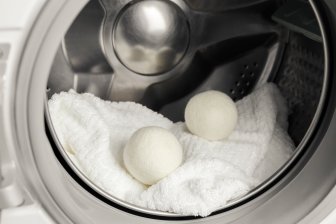Former NHLer Sheldon Kennedy has been the face of child abuse in Canada for the better part of three decades, having suffered sexual abuse by his hockey coach, Graham James, over the course of many years.

Following a handful of made-for-TV movies and documentaries, Kennedy’s story has been shared widely as a source of hope for child abuse victims and those who love them. Now, a new documentary, Swift Current: The Sheldon Kennedy Story, will be airing on Global TV on Nov. 21 at 9 p.m. ET/PT.
But rather than focus solely on Kennedy’s struggles, the documentary’s goals are to “bring a voice to those who don’t have one” and to “paint the picture of the invisible damage” done to abuse victims. Global News spoke to Kennedy about Swift Current, what kids and parents can do to protect themselves from predators, and how much sexual abuse of children is still happening in Canada.
Global News: How have you managed to survive all of this over the years?
- Train goes up in flames while rolling through London, Ont. Here’s what we know
- Wrong remains sent to ‘exhausted’ Canadian family after death on Cuba vacation
- Liberals having ‘very good’ budget talks with NDP, says Freeland
- Peel police chief met Sri Lankan officer a court says ‘participated’ in torture
Sheldon Kennedy: I made sure that I kept reaching out for help. It became very difficult to reach out, and I always seemed to wait until I was in a heap of hurt before I did it. What’s happened over the years is I’ve gotten a lot better at it. This is all about practicing to live a different way, with what has happened to you. It’s about accepting the impact this is going to have on your life. I haven’t been abused in about 15 years, but I still feel like killing myself. The feeling has never changed. So it’s about understanding, and learning how to work on fixing it.
Is this kind of abuse still going on in kids’ sports, and in hockey in particular?
This isn’t a hockey issue, it’s a societal issue. We do 125 investigations of child abuse per month at The Sheldon Kennedy Child Advocacy Centre, and 68 per cent of those are sexual abuse. That’s just in Calgary. It happens and it happens a lot. We think that we reach only 10 per cent of these kids, these cases. People have no idea. At the Child Advocacy Centre, we have 120 people: the whole Calgary Police child abuse unit, 30 investigators, 30 social workers, four pediatricians, 18 psychiatrists/psychologists, the RCMP, the crown prosecutors. One hundred and twenty people working on a city of 1.2 million.
READ MORE: ‘Victim-blaming is still alive and well,’ says Sheldon Kennedy on Alberta judge
What can the average person do to help?
Educate ourselves. As a parent, as a friend, as somebody who wants to protect someone else from sex offenders. Abusers operate in society because of our ignorance and indifference. Our best defence is knowledge. If our gut is telling us that something isn’t feeling right, we need to have the confidence to ask questions. That’s the biggest thing: don’t ever be scared to ask questions. What people don’t know is in Canada, we have the legal obligation to report abuse if we suspect it. Call the police, the child’s family, even the Kids Help Phone.
And what about institutions, like hockey organizations or other kid-focused groups?
With Hockey Canada, it’s mandatory for every coach across this country to take abuse, bullying, harassment and neglect training. In almost every province (I know for certainty in Ontario), it’s mandatory for one parent of the family to take a Respect In Sport program, or else your kid can’t play. There’s no question that hockey is the most proactive youth-serving organization in the world for the prevention and creating a standard about this stuff. It’s all about empowering the bystander.
We don’t realize how much this goes on, and it goes on a lot. In 95 per cent of the cases we see, out of the 125 a month, the child knows their abuser. And in 47 per cent of those cases, it’s a parent or caregiver, so really, the safest place for some of these kids might be a sporting environment or school. Because we’re a good teacher or a good coach, we may be the only trusted adult in these kids’ lives, so we need to know what to do.
WATCH: More information sharing need to help mentally ill, says former NHLer
What about for parents?
If your gut is telling you that something doesn’t feel right, it’s probably not right. If an adult wants to spend extraordinary amounts of time with your child, start asking questions. Do your due diligence; find out from the organizations where you sign your kids up what sorts of things they have in place to deal with this stuff, their protocols, what their stance is. Look at them, understand them, then educate yourself. We know that 100 per cent of kids who suffer sexual abuse will have post-traumatic stress disorder. Kids who’ve suffered child abuse are 30 per cent less likely to graduate from high school, 26 times more likely to experience youth homelessness, 72 per cent of people who enter detox programs have had some sort of admitted child abuse, and the list goes on.
Ultimately, what is the message you’d like to send with this documentary?
Our message to the victims out there is to give them a voice, for those who don’t have one. For Canadian society, we want to really connect the dots and paint a picture of the invisible damage — the connection to suicide, the connection to mental health, the connection to addiction and the connection to self-harm. When people see the film, I think they’ll see the real impact of this crime.
Swift Current: The Sheldon Kennedy Story airs on Global TV on Nov. 21 at 9 p.m. ET/PT.





Comments